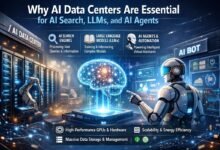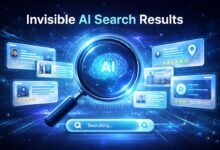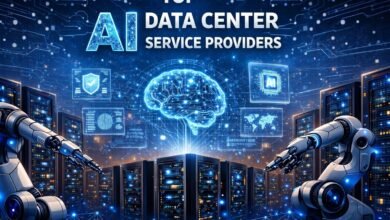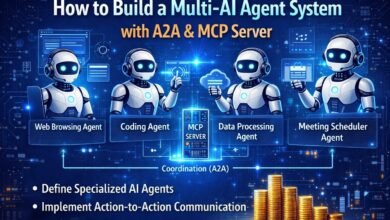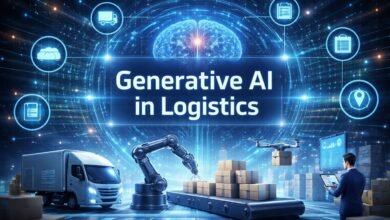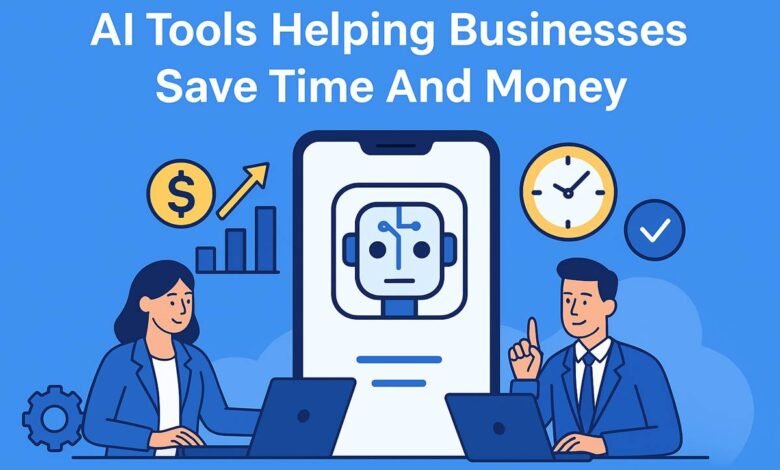
In 2025, artificial intelligence (AI) has evolved from being a futuristic concept to an essential business necessity. Companies across industries—from healthcare and finance to retail and manufacturing—are leveraging AI-powered tools to automate repetitive tasks, improve accuracy, and reduce operational costs.
These tools not only streamline workflows but also provide data-driven insights that enhance decision-making. Whether it’s predictive analytics, generative AI, or workflow automation, the right AI solutions can save organizations both time and money. Let’s explore some of the top AI tools in 2025 that are redefining business efficiency and productivity.
Why Businesses Need AI Tools in 2025
Artificial Intelligence is no longer optional—it’s a competitive advantage. In today’s fast-paced market, companies face pressure to do more with fewer resources. AI tools help them automate complex processes, improve customer experiences, and maximize productivity.
Automation for Efficiency
AI automation eliminates manual and repetitive tasks, allowing employees to focus on strategic goals. Tools like Zapier and UiPath streamline workflows and integrate business apps seamlessly.
Cost Reduction and Accuracy
AI-powered data analysis and automation reduce human errors and operational expenses. For instance, machine learning algorithms detect inefficiencies that humans might overlook.
Enhanced Decision-Making
AI helps business leaders make informed decisions using predictive analytics, customer behavior modeling, and real-time insights.
Improved Customer Experience
Chatbots, virtual assistants, and recommendation systems powered by AI enhance user engagement and satisfaction while reducing customer support costs.
Competitive Advantage
Businesses that integrate AI stay ahead by offering personalized services, predicting trends, and improving productivity—making them more adaptable in a tech-driven world.
Top AI Tools Helping Businesses Save Time and Money in 2025
Here’s a curated list of the most efficient AI tools that businesses are using in 2025 to achieve growth and cost efficiency.
#1. ChatGPT Enterprise
ChatGPT Enterprise is a powerful conversational AI platform that assists companies in customer support, content creation, and data analysis. Its enterprise-grade security, scalability, and integration capabilities make it ideal for businesses of all sizes.
Key Benefits:
- Saves time by automating responses.
- Enhances internal communications.
- Reduces content creation costs.
#2. Jasper AI
Jasper AI is one of the leading AI content generation tools. Businesses use Jasper to create marketing copy, blogs, and ad content faster and more efficiently.
Key Benefits:
- Generates human-like text for marketing campaigns.
- Saves hours of writing and editing time.
- Reduces the need for large content teams.
#3. Notion AI
Notion AI acts as a productivity enhancer by combining AI note-taking, summarization, and task automation. It’s a must-have tool for teams managing multiple projects.
Key Benefits:
- Helps organize tasks intelligently.
- Suggests better project planning insights.
- Saves time in documentation and reporting.
#4. Fireflies.ai
Fireflies.ai is a meeting assistant that records, transcribes, and summarizes meetings using AI. It saves professionals countless hours spent on manual note-taking.
Key Benefits:
- Automatic meeting transcription.
- Smart summaries for quick reference.
- Improves collaboration and accountability.
#5. ClickUp AI
ClickUp AI transforms project management by automating task creation, updating progress, and analyzing team productivity.
Key Benefits:
- Enhances workflow efficiency.
- Saves management time.
- Offers data-backed team performance insights.
#6. Grammarly Business
Grammarly Business helps teams maintain professional communication by checking grammar, tone, and clarity in real-time.
Key Benefits:
- Reduces editing and proofreading time.
- Improves content accuracy.
- Ensures brand consistency across all written materials.
#7. Synthesia
Synthesia allows businesses to create AI-generated videos using text prompts. It replaces traditional video production costs and reduces turnaround time.
Key Benefits:
- Creates professional videos without a camera crew.
- Localizes videos into multiple languages instantly.
- Cuts down marketing and training costs.
How AI Tools Drive Profitability and Business Growth
The adoption of AI tools directly impacts a company’s bottom line. They reduce labor costs, improve productivity, and open up new opportunities for revenue generation.
Streamlined Operations
By automating back-office processes like accounting, HR, and inventory management, AI saves thousands of man-hours every year.
Data-Driven Marketing
AI analyzes consumer data to predict buying behaviors, optimize campaigns, and enhance targeting accuracy—leading to higher conversion rates.
Personalized User Experience
AI algorithms personalize content, product recommendations, and customer journeys—boosting satisfaction and repeat sales.
Fraud Detection and Security
Advanced AI tools detect unusual activity patterns to prevent fraud, protecting both businesses and customers.
Scalable Business Model
AI allows companies to scale operations effortlessly without needing equivalent increases in workforce or infrastructure.
Challenges Businesses Face When Implementing AI Tools
While AI tools bring immense benefits, their integration can present challenges that businesses must overcome to realize full potential.
Data Privacy and Security
Ensuring compliance with global data protection laws is critical when implementing AI-driven solutions.
High Initial Investment
Though AI saves money long-term, initial setup and training costs can be significant for smaller firms.
Skill Gap and Training
Employees may require technical training to adapt to AI-powered workflows effectively.
Integration with Existing Systems
Legacy systems might not seamlessly integrate with new AI technologies, requiring customization.
Ethical Considerations
AI must be used responsibly to avoid biases in algorithms and ensure fairness in decision-making.
Future of AI Tools in Business
By 2025 and beyond, AI will continue to evolve, integrating more deeply into every business process. Companies will use predictive AI for strategy, generative AI for creativity, and autonomous systems for efficiency. As AI becomes more affordable and accessible, even small businesses will adopt it to remain competitive.
Conclusion
AI tools have become indispensable for businesses looking to save time, reduce costs, and improve productivity in 2025. From automating workflows to providing advanced analytics, these technologies empower companies to work smarter, not harder. As AI continues to evolve, its impact on efficiency, innovation, and profitability will only grow stronger. Businesses that embrace AI now are positioning themselves for long-term success in an increasingly digital world.
